CIA Sponsored Terror, Civil Liberties, Guantanamo, Habeas Corpus, Human Rights, Political Prisoner, Prison Industry, Targeting Muslims, Torture, Truth to Power
Podcast: Play in new window | Download
Updates:
- US Refuses To Extradite Former Bolivian President
- Jose Padilla Re-Sentencing
- Ward Churchill Case Update – Are University Board of Regents Immune?
- Armenia Protests Extradition of Axe Murderer
——

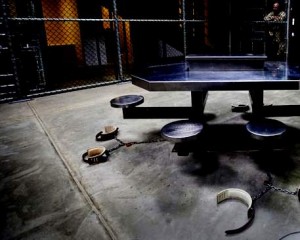

Department of Defense Declassifies Report on Alleged Drugging of Detainees
Hosts discuss a recently declassified report on alleged drugging of Guantanamo detainees with Attorney Shane Kadidal.
Guest – Attorney Shane Kadidal, senior managing attorney of the Guantánamo Global Justice Initiative at the Center for Constitutional Rights in New York City. He is a graduate of the Yale Law School and a former law clerk to Judge Kermit Lipez of the United States Court of Appeals for the First Circuit. In his eight years at the Center, he has worked on a number of significant cases in the wake of 9/11, including the Center’s challenges to the detention of prisoners at Guantánamo Bay (among them torture victim Mohammed al Qahtani and former CIA ghost detainee Majid Khan), which have twice reached the Supreme Court, and several cases arising out of the post-9/11 domestic immigration sweeps.
——

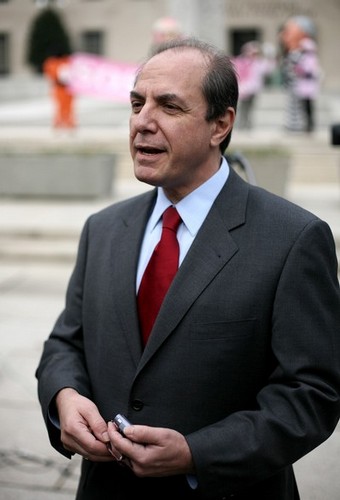
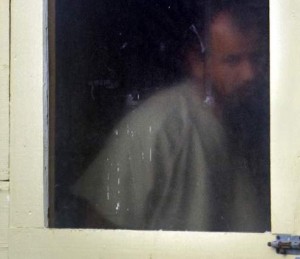
Adnan Latif – the Face of Indefinite Detention – Dies at Guantánamo
A prisoner held at Guantanamo Bay Naval Base since 2002 died last week. Adnan Farhan Abdul Latif was a 32 year old from Yemen who was allegedly suicidal and mentally ill. Latif won a U.S. court order for his release but it was overturned on appeal. In 2009, President Obama imposed a moratorium on Guantanamo prisoners from Yemen after a Yemeni trained Nigerian was found with a bomb in his underwear on a Detroit bound plane in 2009. Latif is the ninth prisoner to die at Guantanamo Bay prison.
Attorney David Remes:
- We decided to put out a statement by the lawyers. We wanted to call his family but the government said let the ICRC do it.
- He was approved in 2004, he was approved in 2007, and approved in 2009 for transfer out of Guantanamo.
- Adnan filed a habeas corpus petitions in 2004. In 2008 those cases began to move forward, Adnan was among them. He won his habeas case. The whole case against him hinged on an intelligence report that the district court judge said was unreliable. The case was appealed by the Obama Administration.
- He was a very sweet man, he was small, he was thin.
- He was very sensitive and a fine poet. He felt everything more keenly, perhaps more keenly than any of the other detainees.
- He felt that his spirit was being crushed. That he was always being roughed up by the guards. He was on long hunger strikes, he was held in isolation for the majority of his time in Guantanamo.
- He was mentally very fragile.
- At one point in my representation of him in 2009, he slit his wrists as I was speaking with him . . by chipping formica from under the table and cutting into his vein let the blood drip into a little cup and then threw his blood on me.
- I took an inventory of his various bumps, bruises and swellings. It was almost like a doctor’s visit.
- He was a small guy.
- He could be very lucid, he was very intelligent.
- You just have to question the NCIS reports from the beginning.
- Whatever the conclusions that were announced it was Guantanamo that killed Adnan. It ruined his health, it ruined his spirit, it may have led him to suicide.
Guest – Attorney David Remes, a human rights lawyer who has been deeply involved in the litigation on behalf of Guantanamo prisoners since 2004. He represents 16 Yemenis and has made several visits to Yemen to press for his clients’ release and brief their families. He was among the first lawyers to visit Guantanamo after the Supreme Court ruled in Rasul v. Bush in 2004 that the prisoners had a right to legal counsel.
————————————————————————–
Afghanistan War, CIA Sponsored Terror, Civil Liberties, Criminalizing Dissent, Extraordinary Rendition, FBI Intrusion, Guantanamo, Habeas Corpus, Human Rights, Iraq War, Military Tribunal, Political Prisoner, Targeting Muslims, Torture
Podcast: Play in new window | Download
Updates
- Michael Ratner: Update on Verdict – Corrie v State of Israel
- Cardinal Dolan Who Approved Payoffs For Priests Accused of Sex Abuse To Leave Priesthood Gives Speech At RNC and Closing Speech for DNC
—–

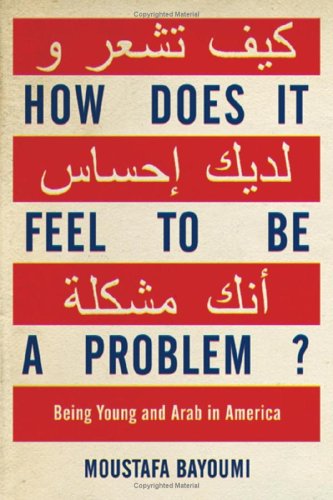

Islamophobia: Anatomy of an American Panic
In the last few weeks, 8 places of worship connected with South Asians or Middle Easterners have been targets in the United States. As many listeners know, six people were murdered at a Sikh temple in Oak Creek, Wisconsin but later that evening a mosque in Joplin Missouri was burned down. Other targets recently included mosques in Rhode Island, Southern California, Oklahoma City and Dearborn, Michigan. These tragic events mark another wave of existential Muslim threats inciting fear and violence against Middle Eastern people while helping to justify the ongoing war on terror.
According to the University of Maryland’s National Consortium for the Study of Terrorism and Response to Terrorism, since 9/11 to 2010 there have been 155 terror incidents in the U.S., and exactly two of them or 1.3 percent have been attributed to international Islamist terror groups. The majority of events involved individuals such as anti-abortionists, right-wing extremists, or extreme animal rights activists.
The Nation Magazine has highlighted the disproportional focus put on Muslim communities in a special issue titled “Islamophobia: Anatomy of an American Panic.” We talk with journalist Lizzy Ratner and authors Deepa Kumar and Moustafa Bayoumi who contributed articles to the Nation Magazine special.
Lizzy Ratner:
- The Nation did a special issue about Islamophobia. It came out in the beginning of July. You can still find the majority of the articles online. The real credit has to go to Abdeen Jabara whose idea this really was.
- The civil rights attorney came to me last year and said the anti-Arab, anti-Muslim has reached fever-pitch.
- So I began to do some research about what exactly was going on and very quickly compiled a massive roster of possible articles.
- For the most part, the Left and Progressives have been far too quiet.
- This bigotry that is flourishing right now has a real history, it’s not a just a product of 9/11 and the post 9/11 era.
- Some of the seeds of bigotry have to do with the role of the United States historically in the Middle East.
- Islamophobia served an agenda and a number of purposes.
Guest – New York City journalist Lizzy Ratner has written extensively for the Nation and Alternet on issues involving Islamophobia. Lizzy is also co-editor of The Goldstone Report: The Legacy of the Landmark Investigation of the Gaza Conflict.
——
Moustafa Bayoumi:
- I was happy to see that the Nation was happy to take on the question of Islamophobia for a double issue.
- There’s been a shift in the last ten years from paranoia around security to a paranoia about the basic facts of Muslim life in the United States.
- In a way you can say it’s a shift from security to culture.
- At any stage, anything that has to do with a daily concerns about living a life as a Muslim American, somehow now becomes charged with sedition. Part of the funding of the anti-Muslim movement in the United States is basic conservative politics and extreme conservative politics.
- And also due to the Israel-Palestine conflict. So people who want to come aboard Israel will make a very distorted picture of what Muslim life is like.
- The NYPD has now a decade long history of “othering” the Muslim-American community.
- The NYPD had been screening The New Jihad for its new recruits.
- It’s a crazy film saying that all of the American Muslims are here as a fifth column ready to pounce. It’s a training film for new recruits. That’s true for the Pentagon and the FBI.
- Muslim Americans are still seen as perpetual foreigners.
- That Muslim American rights are different than everyone else’s rights.
- You’re average American consumer of media does not relate to the victims of the Oak Creek massacre because they don’t see them as being part of the American family.
- They asked American’s in this poll, and 62 percent of the population has never met a Muslim.
- If you’ve never met a Muslim then it’s very easy to believe all these boogey man ideas. That’s why media plays an important role in this issue.
- The FBI (training manual) said that it was in the nature of Muslims to try to take over this country.
Guest – Author Moustafa Bayoumi wrote Fear and Loathing of Islam joins us, his book : Being Young and Arab in America, won an American Book Award and the Arab American Book Award for non-fiction. He is also a professor of English at Brooklyn College, City University of New York.
——
Deepa Kumar:
- As of late the anti-Muslim statements coming from Michelle Bachmann, Joe Walsh, all of whom are Republicans, there is a sense of which it is the Republicans who are responsible for Islamophobia, for the demonization of Muslims and so on.
- This brand of the war on terror gets hatched and part of that was language developed in the 1990s, called the Clash of Civilizations. It was a man named Bernard Lewis who first penned this term.
- It’s not so much we’re going to carry out revenge on Osama Bin Laden but that we’re going to rescue Afghan women. In the case of Iraq, we’re going to bring democracy when no weapons of mass destruction were found.
- This rhetoric has a long history it goes back to the 19th century.
- Both presidents need Islamophobia. They need to generate this fear and hatred of the “Muslim other.”
- Operation Boulder
- The Jonathan Institute holds this conference in Jerusalem . . Islamofacism, the roots are sown at that conference.
- The idea of this menacing Muslim enemy is not new. It was not something created after 9/11 but in fact it goes back a millennium.
- It’s about political goals but religious rhetoric gets used. Same thing with the re-conquest of Spain.
- The Islamophobic rhetoric is one that’s mobilized by the elite.
- I hold both Republicans and Democrats responsible. These rabid right wingers get their confidence from mainstream figures like Walsh, like Bachmann and others.
- The sad reality is that the Democrats have done nothing to counter this.
- The Democrats are not an ally in this fight.
- I take inspiration from 2 movements in the sixties, the civil rights movement and the anti-war movement. I think these 2 strategies need to come together in fighting Islamophobia.
- We have to take on both the far right and challenge the priorities of empire and bring together a multiracial coalition that can actually change a generation.
- It was President Clinton with Anti-Terrorism and Effective Death Penalty Act in 1996 which made it legal to actually deport people with secret evidence. We know this lays the basis for the Patriot Act. This has really been a bipartisan project in the interest of empire.
Guest – Deepa Kumar, an Associate Professor of Media Studies and Middle Eastern Studies at Rutgers University. Her work is driven by an active engagement with the key issues that characterize our era–neoliberalism and imperialism. Her first book, Outside the Box: Corporate Media, Globalization and the UPS Strike (University of Illinois Press, 2007), is about the power of collective struggle in effectively challenging the priorities of neoliberalism.
———————————————–
CIA Sponsored Terror, Civil Liberties, Habeas Corpus, Human Rights, Iraq War, Military Tribunal, Prison Industry, Supreme Court, Torture
Podcast: Play in new window | Download
Updates:
- Michael Ratner: Update on Julian Assange
—-
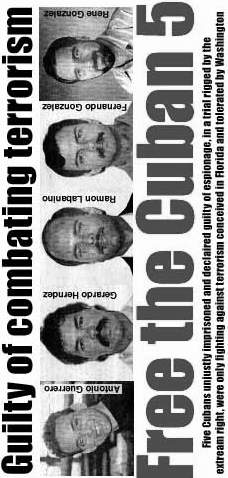

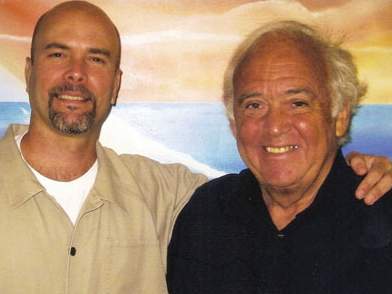
Attorney Martin Garbus and the Cuban Five
Earlier this summer we talked with renowned First Amendment and civil rights attorney Martin Garbus about joining the Cuban Five’s legal defense team. He recently filed an affidavit in the Miami Federal District Court based on US government misconduct of paying Miami journalists during the Cuban Five’s prosecution 14 years ago. As many listeners may know, these paid reporters covered the Cuban Five case in an almost hysterical fashion. The affidavit supports Cuban Five defendant Gerardo Hernández’ habeas corpus appeal and seeks the overturning of his wrongful conviction.
Attorney Martin Garbus:
- We’re saying that every person involved in the payments, the government, Radio Marti, the persons who received the payments. The journalists also violated the law.
- I think it is jury tampering. We’re saying that every dollar that was paid is a violation of the integrity of a jury trial. There were many millions of dollars.
- We’re saying that the jury trial was destroyed by a propaganda machine.
- The government then says, well you have to prove that. There are several different allegations.
- There is Radio Marti. In 1996, just about the time of the shoot down Radio Marti moves from Washington to Miami.
- It’s the only Voice of America station if you will that doesn’t operate out of Washington.
- It shows that the government was willing to give the Cuban exiles control over Radio Marti.
- In 1996, its recognized that Radio Marti is totally internal to effect the Cuban exile population in Miami.
- They then go to the newspapers, the Miami Herald, the Nuevo Herald and they (Radio Marti) start to give those journalists money.
- We filed an 80 page affidavit with hundreds of pages of exhibits.
- We’ve gone through relentlessly of payments made by Radio Marti by the government to journalists. We’ve come up with 11 journalists who have received close to a million dollars.
- The articles that they wrote should be read fairly carefully.
- They make the argument that the people who are being tried in the case were the early landing force for a Cuban invasion.
- American money is being given to writers who are then attacking America which has prosecuted people who have killed Americans. We’re trying to vacate the conviction.
Guest – Attorney Martin Garbus, one of the country’s leading trial lawyers. He has appeared before the United States Supreme Court and the highest state and federal courts in the nation. Time Magazine has named him “legendary . . . one of the best trial lawyers in the country.” He’s also known as the most prominent First Amendment lawyer.
—–


Washington DC Court Ruling on CO2
In April 2007, the US Supreme Court handed down its first decision related to climate change issues. The case was Massachusetts v. EPA and the high Court held that the Clean Air Act authorized the Environmental Protection Agency to regulate greenhouse gas emissions IF the agency determined that these emissions posed a danger to human health and welfare. The EPA did in fact make such an “endangerment” finding, and then proceeded to begin the process of adopting regulations to limit greenhouse gas emissions.
The initial lawsuit was brought by the Coalition for Responsible Regulation, which includes a range of petroleum-based industries, and supported by several states, including Texas, Alabama, Georgia, Nebraska, North Dakota, South Carolina, and Virginia. The EPA, on the other hand, was joined by California, New York, Delaware, Iowa, Maryland, Illinois, Maine, Massachusetts, New Mexico, Oregon, Vermont, Rhode Island, Washington and New York City. These three rules were challenged on various grounds – in the end the Court upheld the EPA’s action and resoundingly affirmed the agency’s authority and obligation to regulate greenhouse gas emissions.
Law Professor Eleanor Stein:
- Rolling Stone: The New Math of Green House Gas and Warming.
- Greenhouse gases are chemical substances, usually referred to a basket of six which contribute to the warming of the Earth because as they accumulate in the atmosphere they prevent the refraction of the Sun’s energy away from the Earth and back into space.
- Of these six substances the one often discussed is carbon dioxide which is the most plentiful, methane is among the most potent. Recent court case – The Coalition For Responsible Regulation Against the EPA – it was decided in the D.C. circuit a month ago.
- The Massachusetts case at the Supreme Court was about specifically regulation of emissions from new motor vehicles.
- Once the court ordered the EPA to do its endangerment investigation, it did so and made an endangerment finding in 2009. It found that greenhouse gas emissions were a danger to human health and welfare.
- The EPA was then required to regulate emissions of new motor vehicles. They did that adopting a set of rules known as the Tailpipe Rules.
- The EPA went on to adopt a set of rules for stationary sources ie, coal powerplants, those rules are known as the Timing and Tailoring Rules.
- Endangerment Finding / Tailpipe Rule / Timing and Tailoring Rule
- The current ruling of the D.C. court upholding the three rules – is a tremendous affirmation of current climate science, its a rejection of a lot of climate denial and other industry.
- The most extensive discussion is their analysis of the Endangerment Finding, which is the EPA’s analysis of the climate science.
- The Tailpipe Rule went into effect January 1, 2011. This will make a contribution to reducing emissions.
Guest – Law professor Eleanor Stein teaches a course called the Law of Climate Change: Domestic and Transnational at Albany Law School and SUNY Albany, in conjunction with the Environmental and Atmospheric Sciences Department at SUNY.
—–
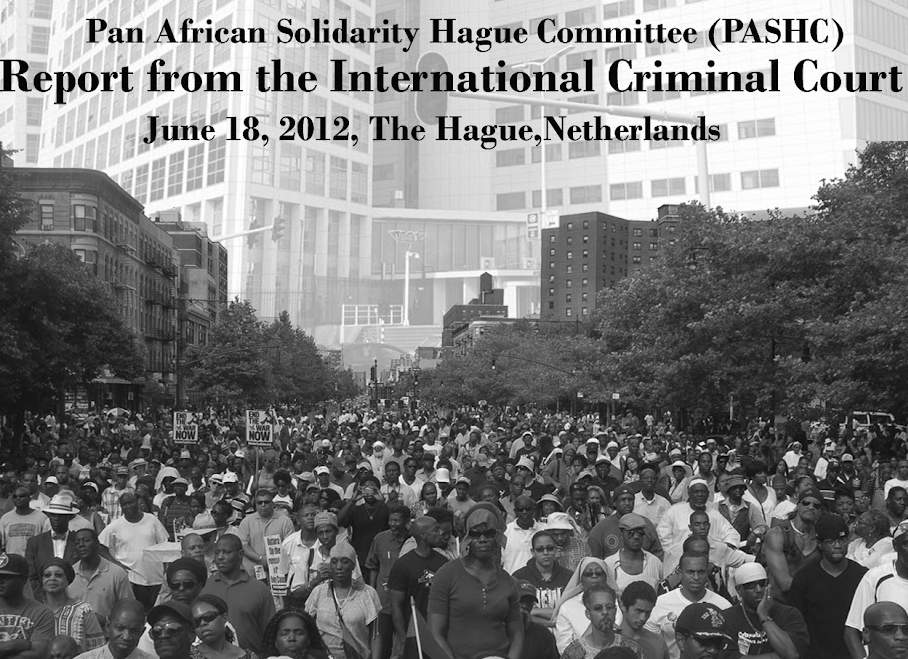
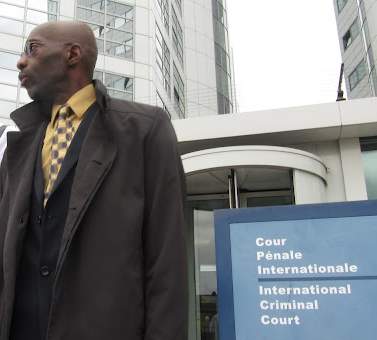
Pan African Solidarity Hague Committee Serves The ICC
In June of this year, the Pan-African Solidarity Hague Committee delivered a petition to the International Criminal Court at the Hague, Netherlands demanding they prosecute the United States, Great Britain, France, Italy, Canada, and NATO for war crimes and crimes against humanity in Libya, Cote d’lvoire, Haiti and the US. This campaign began in May of last year when thousands gathered to protest the US/NATO bombing of Libya, attacks on Zimbabwe and the racist assault against African-Americans in the United States. The evidence presented made a prima facie case of crimes committed and was the basis of the petition served this year.
Attorney Roger Wareham:
- The United States was very involved in the process of setting up the ICC.
- There are approximately 116 countries that have signed on at this point. Which means there are about one third of the countries in world who have not signed on.
- After 10 years the court came forward with its first conviction. It was a citizen of the Democratic Republic of Congo convicted of crimes against humanity.
- It’s record has been really a court to prosecute Africans.
- Of the cases that are in front of it now, all of them are Africans.
- It’s as if people who’ve violated human rights don’t exist outside the African continent.
- As one observer had said this is really an African criminal court and not an international criminal court.
- With the international criminal court, non governmental organizations can bring charges, bring communications saying we think there’s enough evidence to begin an investigation and prosecute.
- The ICC had taken out a warrant against Khaddafi saying he was a human rights violator, committed crimes against humanity, war crimes.
- In May 2011 when it was clear they were trying to effect regime change and assassinate Colonel Khadaffi we began a campaign to expose that. We saw the same pattern in terms of what happened to President Aristides in 2004.
- After the August 2011 rally we had the people’s tribunal in January 2012.
- In June 2012 we hand delivered the petition to the ICC. We asked to speak to the chief prosecutor. She declined to meet with us for some reason.
- They don’t want to deal with prosecuting anybody from the West.
- A communication was brought to the ICC for the war crimes from Operation Cast Lead. Two years later the ICC declined the petition. I think their technicality was Gaza wasn’t a state.
- There is a campaign by the West to re-colonize the African continent for its resources, to remove those heads of state that are obstacles Western re-penetration.
Guest – Attorney Roger Wareham, a member of the December 12th Movement, an organization of African people which organizes in the Black and Latino community around human rights violations, particularly police terror. Wareham is also the International Secretary-General of the International Association Against Torture (AICT), a non-governmental organization that has consultative status before the United Nations.
———————————————————————-
CIA Sponsored Terror, Civil Liberties, Criminalizing Dissent, Gaza, Habeas Corpus, Human Rights, Iran, Targeting Muslims
Podcast: Play in new window | Download
Updates:
—–
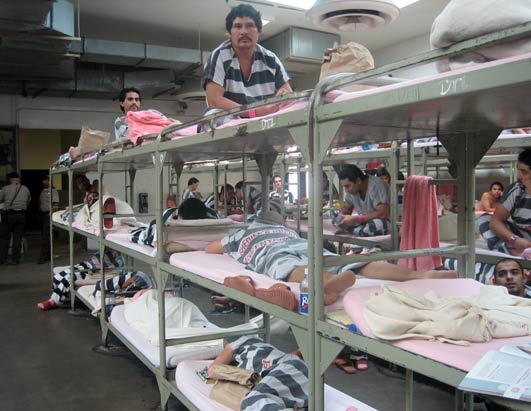
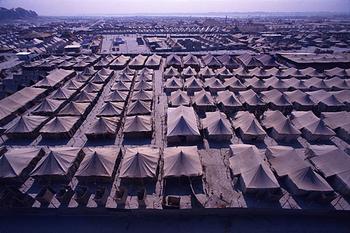
A Challenge to a Brutal Anti-Latino Law
Sheriff Joe Arpaio recently went on trial in Arizona for discriminating against Latinos and for usurping federal authority with roundups of undocumented immigrants. In a related action, a coalition of groups is asking a federal court to block enforcement of Section 2(B) of SB 1070, the Arizona law that compels all law enforcement agencies in that state to enforce the Arpaio model.
In June the Supreme Court rejected the premise of SB 1070 on grounds that making foreign policy – of which immigration law is a part – is a federal government’s domain. However, the Court upheld the law’s “show me your papers” section that requires officers to check the immigration status of anyone they stop, arrest or detain on another basis if the officer has a “reasonable suspicion” the person is in the country illegally.
The motion to block Section 2(B) “involves additional claims, evidence, and irreparable injuries beyond what the Supreme Court had before it.” The challenge explains harms so obvious and unconstitutional that the judge does not need extensive proof of the section’s impact to enjoin it. The Legislature “explicitly intended Section 2(B) to codify the practices” of Arpaio, the motion says, even after his powers had been restricted by earlier investigations into and challenges to his racial profiling. The practices include prolonged stops and detentions of Latinos to check their status or for other immigration-related purposes.
The plaintiffs are also asking the court to enjoin another Arizona law, which turns alleged violations of a federal anti-harboring law into a state crime. Courts have enjoined similar laws in Georgia, Alabama and South Carolina since, like Arizona’s, they were clearly pre-empted by federal law.
Lena Graber:
- The law enforcement in Joe Arpaio’s district have been really outspoken about their intention to stop Latinos and fight immigration.
- The issues around racial profiling are really huge. I think it’s worth separating out the different lawsuits that are going on.
- Sheriff Joe Arpaio runs this incredibly punitive jail where they barely feed people enough it’s a 120 degrees, and he’s been sued literally thousands of times for the conditions of his jail.
- Thats been going on since he was elected in the early nineties.
- In the last several years he’s really gotten on this tough on immigration, let’s do sweeps through the Latino neighborhood.
- The ACLU and other civil rights groups filed a lawsuit against him for racial discrimination, violation of equal protection, and violation of civil rights.
- They filed that 2007, about six months later the Department of Justice initiated a civil rights investigation into Joe Arpaio and his operations in Arizona.
- In the meantime the state of Arizona passed SB 1070.
- There are both civil rights groups and non profits filing one lawsuit and the federal government filing a parallel.
- The Arizona Supreme Court recently ruled on the Arizona law, not on Joe Arpaio, where they struck down most of the law and upheld “show me your papers.”
- The federal government did not argue that the law was unconstitutional because of racial discrimination.
- Litigation tends to effect the way law enforcement operate pretty dramatically.
- Joe Arpaio has been elected five times.
- The federal government has been very slow on the game to chastise Joe Arpaio.
- The Department of Homeland Security formed their largest 287G agreement with Sheriff Joe for his deputies to be trained to enforce federal immigration law. At that point the violations really started to go through the roof.
Guest – Lena Graber, a Soros Criminal Justice Fellow who focuses on detention and deportation and state and local enforcement. Lena Graber’s work seeks to reduce the government’s abuse of immigration detainers–a tool used to maintain custody of potentially deportable individuals in local jails or prisons nationwide. Lena previously worked at the National Immigration Forum in Washington, D.C.
—–
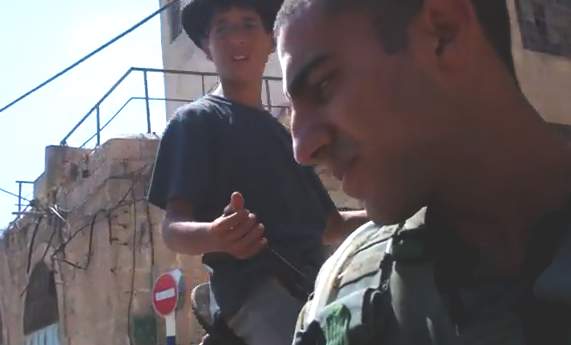

Mondoweiss: Israel Trip and the Future of Palestine
We welcome back returning guest Philip Weiss, the founder and co-editor of Mondoweiss.net, a news website devoted to covering American foreign policy in the Middle East. Philip has recently returned from a trip to Israel and was struck by the ongoing apartheid against Palestinians. During his trip, he traveled an Israeli’s only road. He saw the massive barrier in the West Bank. He toured many Israeli settlements, such as Ma’ale Adumim, the first settlement to be declared a city. Interestingly Philip also saw some of the fund raiser entourage of Republican presidential candidate Mitt Romney while in Jerusalem. We talk with him about his trip and the future of the Palestinian state.
Philip Weiss:
- The last few times I’ve come back I felt a real sense of bleakness.
- When you’re there and you see just how much force is arrayed on one side and the status quo is of complete inequality.
- The sense of martial law is overwhelming. Spiritually, it’s awful.
- When you’re over there you see there is very little left in terms of contiguous territory in the West Bank to create a viable state.
- You see the settlements all around you, giant swimming pools next to villages with walls around them, to separate themselves from Palestine villages in occupied land.
- Jeff Halper says the 2 state solution is dead.
- Area C is ours they say.
- I saw one ad on my commute here today that read – It’s Not Islamaphobia to Blame Islam for Terrorism.
- This is extremism, it’s intolerance, it’s racism.
- It’s statements that we would not accept, that have become off limits in American discourse in almost any other context.
- One thing I saw there was the separation, the complete separation of two societies.
- You really get a sense of ethnic purity at work.
- The denial of that humanity is so profound and offensive.
- I’ve been struck by the famous Arab hospitality in that region.
- The sense of sovereignty and domination is profound.
- It’s hard sometimes to meet people’s eyes, because you know that you’re an author of their humiliation and this human being with a lot of dignity has suddenly become humiliated before your eyes and it’s upsetting.
- John Brown said the idea that all people are created equal is the exact same idea as do unto others as you would have them do unto you.
- It’s kinda scary to think that a bunch of Americans to send a signal to Obama would have to go raise a million dollars at the King David hotel in Jerusalem and have Romney talk about Iran and he’s with Netanyahu on Iran. These were powerful political signals being sent while I was there.
- I think Romney is behaving in an irresponsible manner. It seems like he’s being used in this situation. Within the Israeli security establishment there is some sense it does not want this attack.
- They don’t care about Iran, they care about cleansing the West Bank of Palestinians.
- If there is a war with Iran it’s a perfect opportunity and a crisis to push more Palestinians out of area C into the cities.
- I’m for BDS. Every time I go there I’m upset by what I see. The question is that whether the South African connection is kicking in. (BDS Collective)
- I get a lot of criticism from Jews for exposing my people to danger.
- Jeff Halper studies the occupation and knows it in a granular way.
Guest – Philip Weiss, founder of Mondoweiss, longtime journalist and regular contributor to the Nation and a fellow at the Nation Institute. Philip is the author of two books a political novel, Cock-A-Doodle-Doo, and American Taboo, an investigative account of a 1976 murder in the Peace Corps in the Kingdom of Tonga. Weiss is one of the editors of The Goldstone Report: The Legacy of the Landmark Investigation of the Gaza Conflict.
————————————————————————–
Afghanistan War, CIA Sponsored Terror, Civil Liberties, Criminalizing Dissent, Habeas Corpus, Human Rights, Iraq War, Military Tribunal, Political Prisoner, Surveillance, Torture, War Resister
Podcast: Play in new window | Download
Updates:
—-

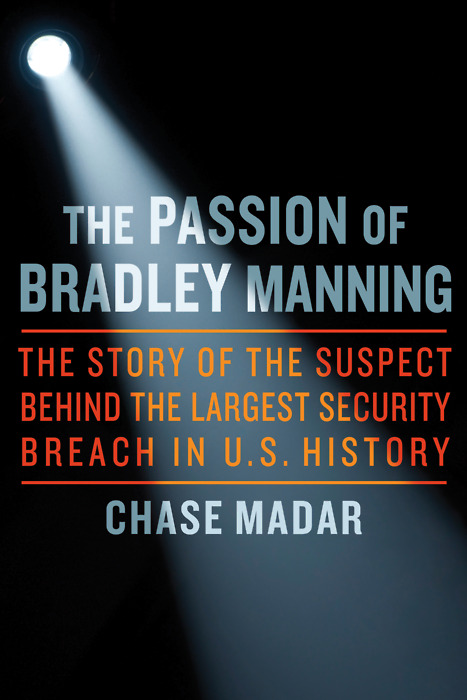

The Passion of Bradley Manning: The Story of the Suspect Behind the Largest Security Breach in U.S. History.
We continue to look into the the Bradley Manning story, the biggest whistle-blower case in US history. Attorney Chase Madar joins us in the studio, he’s the author of The Passion of Bradley Manning: The Story of the Suspect Behind the Largest Security Breach in U.S. History. The book moves through Manning’s childhood and up to what led him to allegedly upload volumes of classified secret information to Wikileaks. Madar highlights the value of publicly exposing the endless criminal and immoral actions while government secrecy spins out of control, classifying 77 million documents a year. He also asks what can be done to protect Bradley Manning as a whistle-blower. Since his arrest 2 years ago, Manning’s formal court martial proceedings are not scheduled to begin until February 2013, and as many listeners know the most lethal charge is aiding the enemy.
Attorney Chase Madar:
- I worked as a staff attorney for many years at a great non-profit in Bushwick section of Brooklyn doing all kinds of low tech services for Spanish speaking immigrants.
- I quit that and have been writing about foreign affairs. I got put on the sight of Bradley Manning by Tom Englehart, who edits the great TomDispatch web project.
- So many important issues collide in this case, whether its the comparative risk to our security of secrecy versus leaks. How we judge threats, how we misassess threats. How we use solitary confinement as punishment, is it an acceptable punishment?
- What power does information have anyway? A lot of intellectuals think that information has an incredible catalytic effect.
- Bradley Manning enlisted in the Army in October 2007. He’s deployed to Iraq after all kinds of training in Army intelligence in 2009.
- He allegedly begins leaking things in early 2010 and he’s arrested in late May 2010 over 2 years ago now. He was held in solitary confinement, very strict punitive isolation in Quantico Marine Corp base in Virginia, from July 2010 to April 2011.
- We’re looking at 2.5 years of pretrial confinement.
- You can divide up the Wikileaks leaks allegedly supplied by Bradley Manning in 3 categories. Iraq material, thousands of war logs: raw reports file by soldiers, Afghan war logs, it’s a composite of a war that’s weirdly aimless.
- Obama did campaign as the whistle-blower’s best friend, and he has prosecuted twice as many as all previous administrations.
- Here’s one theory I find persuasive. It’s important for Obama to have the intelligence services on his side. This was a way for him to show the CIA that he would go along them.
- I would like to see a serious change in foreign policy which has gone off the rails.
- We haven’t the kind of course correction with Obama that many had hoped for.
- I hope Wikileaks do disrupt foreign policy more. There’s been all kinds of smack talked about Bradley Manning, he’s a weirdo, a malcontent, he did what he did because he’s screwed up, he did because he’s gay.
- His motives are very plain to see in the chat logs between him and the informant.
- The Manning chat logs – they read like a tragic novella.
- So much of our secrecy law is designed to keep the American public in the dark.
- I think we have badly confused being clueless with being safe.
- He comes across as an immensely thoughtful, courageous and very principled young man. In some ways he’s an extreme version of the millennial generation who have a lot of education and potential but find themselves not doing too well.
- His father was in Naval Intelligence and he’d grown up with a sense of patriotic responsibilities.
- What makes him turn on the inside and leak these things?
- He’s asked to look into the arrest and capture by the Iraqi authorities a group of non-violent Iraqi protesters who were handing out pamphlets that were all about corruption in Iraqi government.
- We are light years away from total transparency.
- The main thing is to make records of the court proceedings publicly available.
- I think a guilty conviction and a heavy sentence of at least 50 years is a foregone conclusion.
- The wages of government secrecy, not security but disaster.
- It looks like the court martial won’t begin until January or February.
- Go to the Bradley Manning support network website. Send him a postcard.
- It’s your patriotic duty to browse the leaks.
- Legal Atrocities – by Chase Madar
Guest – Attorney Chase Madar , a TomDispatch regular and author of a new book, The Passion of Bradley Manning (OR Books). Madar tweets @ChMadar. He’s a contributor to the London Review of Books and Le Monde diplomatique and the author of a new book, The Passion of Bradley Manning (OR Books).
——————————————————-
CIA Sponsored Terror, Civil Liberties, Criminalizing Dissent, Habeas Corpus, Human Rights, Political Prisoner, Prison Industry, Surveillance, Torture
Podcast: Play in new window | Download
Updates:
—

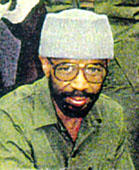
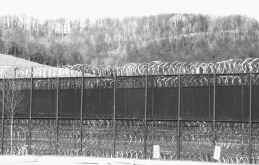
Campaign To Release Russell Shoatz From Solitary Confinement Into General Population
Last year, the National Lawyers Guild called on Superintendent Louis Folino to support the Program Review Board’s recommendation to release Russell Maroon Shoatz into the general prison population at SCI Greene in Waynesburg, Pennsylvania. As many listeners may know, Russell Maroon Shoatz has been held as a political prisoner under intense lockdown spending no more than one hour a day outside of his cell for the past 21 of those years. He was locked up in 1972 for his activity as a member of the Black Liberation Army. We follow up on the international campaign to release Shoatz. The effort was launched in New York City and London and sponsored by the Scientific Soul Sessions.
Theresa Shoatz:
- He goes before the Program Review Board every 90 days, its about 68 visits since he’s been in solitary confinement. He hasn’t had any infractions in 30 years.
- If you look at that, they don’t intend to release him into general population.
- It’s a check-off, how has response been around the guards? What’s your response when you’re taken to the shower?
- Russell had become disappointed with the Program Review Committee and said “I’m not going anymore.”
- I called the Program Review Committee at SCI Greene, and said we’re getting tired of this no-movement forward.
- They said they look down on that as not cooperating with the prison. We look at as they’re not cooperating with all the rules they set forth. There is a step down program, they don’t use it as much as they should.
- When you talk about holding one person in solitary confinement, he has to be transferred, whatever his movement, to the shower, to the one hour cage, it takes two guards.
- SCI Greene released at least 20 prisoners from solitary confinement who they had no intention of releasing but because the state budget is in jeopardy now.
- They left Daddy back there. Daddy’s approaching 70 years of age, he hasn’t had an infraction in 30 years, you would’ve thought he’d be the perfect person for this step down program, and we questioned that.
- When I talk to the staff in solitary confinement, they all say he needs to be general population.
- Superintendent Folino retires in 2 years and I think he may want to slide out without releasing him into population.
- Russell escaped in 1977, in the 80s, he was in population at SCI Pittsburgh.
- He had been voted the first black president of the Lifers Association.
- Folino states that he is a leader and he is to remain in solitary. The director of the Program Review Committee actually stated that he is a leader. Obviously Theresa, you don’t know he’s a leader?
- Outside of him being a leader, he’s been able to withstand this 23 hour a day lockdown.
- I do see there are some changes with Russell. I’m talking emotionally, he’s very distraught now.
- I’m shocked that he hasn’t totally broken down.
- He gets a lot of mail. He’s busy with letter writing.
- I found there have been a lot of suicides in SCI Greene’s solitary confinement unit. Boys in their twenties hanging themselves. You don’t hear about it.
- This is torture. In 2005, there were 80 thousand people in solitary confinement.
- Juan Mendez’s report on Russell Maroon Shoatz
- My focus is on getting Maroon into population. I’m concerned with stopping the expansion of prisons being built. It costs millions of dollars to build new prisons, instead of using that for education for prisoners being released.
- Put that money back into public schools instead of building new prisons.
- We’re being assaulted by this present day prison system and our government nor our state seems to mind locking up folks or taking away money from our public school education and putting it into prisons.
- Congressional Hearing on Solitary Confinement
- hrcoalition.org / Russell Maroon Shoatz
Guest – Theresa Shoatz, a Philadelphia-based prison justice activist and the daughter of Russell Shoatz.
—–

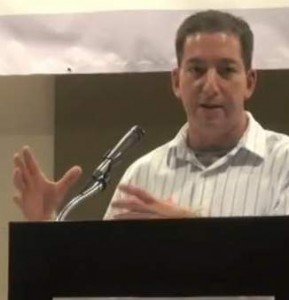
Glenn Greenwald: Challenging the Surveillance State, Breeding Conformists
Glenn Greenwald, author and contributor (columnist and blogger) to Salon.com. During his book tour for the release of With Liberty and Justice for Some, (paper back release) he gave a impactful speech in Chicago titled Challenging the Surveillance State.
—————————————



























